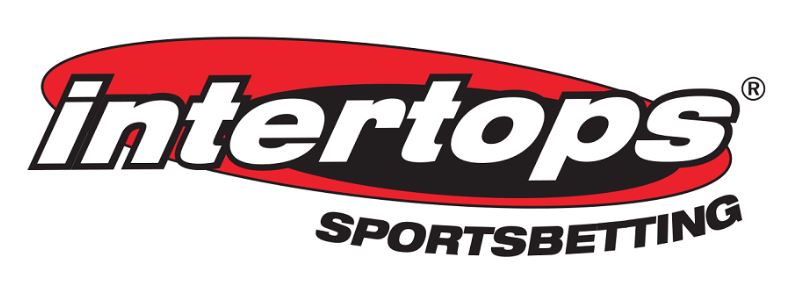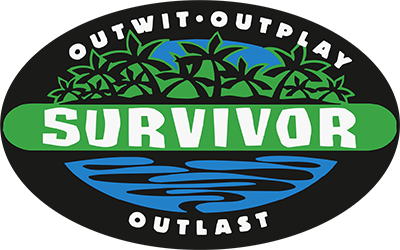The movers, shakers and innovators of the online sports betting business
For the last part of the OSGA 25 Year series, I am going to examine 10 bookmakers or executives of bookmaking services that were instrumental in helping form the online sports betting industry.
Gary Bowman
Gary Bowman was a Canadian who decided to take advantage of a law in the UK that allowed bookmakers to take bets from around the globe. In 1985 Gary Bowman moved to Manchester, England and launched American Football Pools, a company that processed mail-in NFL parlay cards. Bowman apparently was surprised at the success of the parlay cards and decided he could make more money by offering a full sportsbook experience which focused on North America. At the time the only legal sports betting in North America was in Las Vegas and Bowman figured he could attract those with an appetite to bet on sports that were travelling to Vegas or betting with illegal bookmakers.
In 1988 Bowman launched Sports Action International and advertised heavily in newspapers and radio throughout the United States and Canada. At the time the UK had a 10% tax on all bets that had to be paid to the government, so the company offered the bettors the choice of indicating whether they wanted to add the 10% to the bet or take it from the winnings should the bet win at the time of placing the bet. Most chose to add it to the stake. All bets were handled over the telephone via a toll-free number and the minimum stake was $20, which Bowman felt was necessary due to the cost of call centers at the time. Almost all deposits and withdrawals were done by credit card. The operation was a massive success, but the tax requirement on bettors was a disincentive. By 1994 several countries set up tax free zones for gambling and Bowman chose to move the call center to the Island of Mauritius and changed the name of the operation to Bowmans International.
By moving offshore, bettors didn’t have to pay the tax. Bowman created a new website www.bowmans.com, but at first the site only showed the lines. Bettors still had to phone the toll-free number to place bets. The website avoided bettors phoning the call center just to ask for the lines which did not benefit Bowmans. Eventually the website www.bowmans.com was used to place wagers as well with minimum bets of only $1 and the call center shut down. Bowman first used 1-800-RING-GARY for the toll-free number and later added 1-800-BOWMANS. By 1996 Bowmans had over $200 million in handle and was going strong until 2006. Prior to the passage of the UIGEA, Gary saw the writing on the wall and sold Bowmans to Bet365 and stepped away from the industry as a bookmaker. Bet365 kept its international business operating, but just prior to the UIGEA becoming official, Bet365 divested itself of the U.S. operations, while maintaining its Canadian operations. Bet365, to this day, is still the largest sportsbook in Canada, including a legal iGaming Ontario website.
As a true pioneer for offshore gambling in North America, Gary Bowman leads off the top bookmakers that influenced offshore gambling.
Simon Noble
In 1982 Intertops set up a gambling operation with a UK Gambling license, but catered to German clients. It was successful, but was quite costly due to the expense of running a toll free call center. Meanwhile, there was a changing climate in Austria that allowed companies to take wagers from the region, including Germany and Austria. So, in 1992, the CEO of the company, Detlef Train moved the operations to his home country of Austria. While it was still very successful, the cost of taking bets over the phone was prohibitive. A senior employee named Ian Sherrington, along with a younger man in marketing named Simon Noble, approached Train and suggested they use the newly designed world wide web to take bets since it would greatly reduce costs.  Given the go ahead by Train and other executives, the company set up www.intertops.com, which was an immediate success in Germany and Austria. They also offered betting to North America, but the requirement to pay tax on winning bets (similar to Bowmans), made it a huge deterrent to real success. In 1995 Antigua announced it was setting up a tax-free infrastructure and Intertops, at the encouragement of Noble, moved its operations to Antigua. The company announced it would be offline for a couple of weeks, but would be back online and offering tax free betting.
Given the go ahead by Train and other executives, the company set up www.intertops.com, which was an immediate success in Germany and Austria. They also offered betting to North America, but the requirement to pay tax on winning bets (similar to Bowmans), made it a huge deterrent to real success. In 1995 Antigua announced it was setting up a tax-free infrastructure and Intertops, at the encouragement of Noble, moved its operations to Antigua. The company announced it would be offline for a couple of weeks, but would be back online and offering tax free betting.
With many scam books running off with people’s money at the time there was some concern that Intertops could be one as well but within a short period Intertops was back in business with a better and more efficient website and betting experience. They were also the first sportsbook to take a bet in Antigua.
Noble, considered in the industry to be a marketing genius, approached watchdog sites like bettorsworld.com, therx.com, osga.com, etc. with affiliate deals and advertised on search engines to promote the company, realizing that online presences are more likely to attract bettors to an online sportsbook. It was also far cheaper than print media. Noble also realized the importance of getting the Intertops name out there and decided a prime method would be by using a public relations company to generate press releases and brand recognition. One method of doing this was through novelty bets that attracted the notice of not only sports bettors, but just also entertainment fans. In addition to bets on the Oscars, next Pope, next U.S. President etc. Intertops and the PR company kept a look out for current news and offered odds on current events. They were all very successful and the key for the company was setting a loss limit for the novelty bets and taking bets until it reached that loss limit, and then closing off the odds.
Intertops became a household name in the year 2000 when Survivor became a smash hit in the United States as one of TV's first reality shows. The show was perfect for gambling.  There were 16 contestants on the show voted out one-by-one and the contestants were published weekly in the paper showing who was voted out. After the airing of the first show, one of Intertops’ clients suggested to Noble that this would be a great public relations opportunity for the company, but there was a problem because it was pre-taped so the winners were already known, although not yet published. Noble decided the risk was worth the reward so he asked the client to suggest some odds to him and would have $55 limits. As soon as the company posted odds there was significant betting and people signed up new accounts at Intertops just to bet on Survivor. More importantly the lines and the name Intertops were being featured in mainstream newspapers, including USA Today and were discussed on shows like Inside Edition and the Today Show. According to Noble, hundreds were signing up daily just to place their maximum $55 bets to have action while watching the show. Noble called it, "one of the greatest gambling PR stunts ever."
There were 16 contestants on the show voted out one-by-one and the contestants were published weekly in the paper showing who was voted out. After the airing of the first show, one of Intertops’ clients suggested to Noble that this would be a great public relations opportunity for the company, but there was a problem because it was pre-taped so the winners were already known, although not yet published. Noble decided the risk was worth the reward so he asked the client to suggest some odds to him and would have $55 limits. As soon as the company posted odds there was significant betting and people signed up new accounts at Intertops just to bet on Survivor. More importantly the lines and the name Intertops were being featured in mainstream newspapers, including USA Today and were discussed on shows like Inside Edition and the Today Show. According to Noble, hundreds were signing up daily just to place their maximum $55 bets to have action while watching the show. Noble called it, "one of the greatest gambling PR stunts ever."
Noble faced a dilemma after newspapers released a "scoresheet" putting an X through the contestant voted out each week, and in week 5 of the show an internet sleuth said he found the last scoresheet which had an X on it for each contestant except Gervase Peterson. Intertops started receiving hundreds of bets on Gervase daily at odds as high as 3/1 as part of a field bet. Noble had to decide whether to close the market, but decided the publicity Survivor was generating was far too great to give up and decided to keep the bet open willing to lose up to $100,000 on the bet. In 10th episode Gervase was voted out and Noble said the company held a huge party and laughed at not only the number of signups the prop generated, but also the killing they made on a purely PR bet. Intertops was also the first to offer odds on American Idol, Dancing with the Stars and all the reality shows and became known as a marketing success.
Intertops was not interested in wise guy action and made no bones about it, but to this day is still a top offshore book catering to the recreational gambler. Noble also helped the company set up agreements with Microgaming and Party Poker.
Noble left Intertops a few years later after a disagreement with Train, but then went on to help other companies with marketing including WWTS, Pinnacle Sports and Full Tilt Poker. For his contribution to helping form the online industry in Antigua and showing how marketing and public relations is paramount to industry success, Noble is on the most influential list of the last 25 years.
Billy Scott
Born in Toledo, Billy Scott came from a long line of underground criminals who controlled the Toledo gambling scene for decades. According to reports which came out when Doug Ducey ran for Governor of Arizona in 2014, Scott’s family were involved in after-hours gambling clubs, bookmaking, loan sharking and numbers running from the 1930s to the 1970s and were convicted of federal gambling charges, although those were eventually overturned. Billy Scott focused strictly on sports betting and was a high-profile bookie in the 1970s and 1980s in Toledo, but Scott discovered that, in 1994, Antigua had set up a market that allowed anyone to obtain a license and take bets from around the world.
Scott decided to move there, hired some associates and created a company called World Wide Telesports (WWTS) taking bets over the phone. Unlike a few other bookmakers operating, WWTS was not afraid to accept large wagers, including wise guy action. Scott always claimed he was better at the business than his customers, so was not afraid to take a real bet. WWTS advertised heavily in newspapers and also bought time on TV stations that simply featured the lines at WWTS along with the toll-free number to place bets. WWTS became known as the premiere sportsbook to place bets offshore and Scott was raking in millions.
Scott always claimed he was better at the business than his customers, so was not afraid to take a real bet. WWTS advertised heavily in newspapers and also bought time on TV stations that simply featured the lines at WWTS along with the toll-free number to place bets. WWTS became known as the premiere sportsbook to place bets offshore and Scott was raking in millions.
In 1998 Scott, along with associate Jessica Davis, were named in an indictment by Janet Reno for operating illegally offshore and violating the Wire Act. Reno stated that bookmakers "couldn’t hide online or offshore." Scott said that what he was doing was perfectly legal and chose not to return to face the charges. In 2000 WWTS merged with BetCorp, an Australian gambling company that was listed on the Australian stock exchange (ASX) and consequently became the first offshore company to be listed publicly. WWTS operated very successfully from 1997 until 2006 as an online entity, but was forced to shut down operations when the Unlawful Internet Gambling Enforcement Act (UIGEA) passed. The ASX listing made it impossible for the company to continue operations targeting the United States in violation of a federal law. WWTS sold the U.S. facing business to Bodog and the Rest of the World (ROW) operations to Bet365.
In 2003 the U.S. government issued a civil forfeiture action against Soulbury Limited, which was associated with WWTS, for nearly $7 million and in 2012 Scott returned to the U.S. to face the charges. He pled guilty to the charges filed against him and agreed to forfeit the $7 million that was held in the Royal Bank of Scotland, but did not serve any jail time. Shortly thereafter, it is reported that Scott renounced his United States citizenship and retired in the Caribbean.
Everyone who knows or knew Scott says that despite his rough exterior and raspy voice, he has a heart of gold and a great sense of humor.
Scott is listed as an important individual in the bookmakers that built the industry since he was the first underground bookmaker to move offshore and set up a successful business, was the first to show that books could still make money catering to winners and wiseguys without cutting them off and he was instrumental in using forms of non-traditional means for advertising.
Jay Cohen
In 1996 three traders on the Pacific Stock Exchange realized that they could make money if they offered sports betting in a method similar to stock trading. So, in 1997 Jay Cohen, Steve Schillinger and Haden Ware got an Antigua license and started the World Sports Exchange (WSEX). As the name suggests, the sportsbook was unique because in addition to traditional bets, WSEX offered future bets that could be traded throughout the year for bets such as who will win the World Series or traded throughout a tournament as it progressed.  Each offering had a buy and sell price that would change as the year or event progressed and was based on a return of $100. So, for instance, in a golf tournament Tiger Woods could be 4/1 to win a golf tournament at the start and WSEX would offer a buy price at 20 and a sell price of say 16. The $20 buy cost equated to 4/1 odds and the sell price equated to odds of about 1/6 form him to lose the tournament. As the tournament progressed the odds would change. So, if Tiger had a 2 shot lead going into day 3 his odds could be down to even money. At that point, the market for Woods would show a buy price of 50 (even money) and a sell price of say 45 (about 5/6 odds). So, any shares bought at 20 could be sold back at 45 guaranteeing a $25 profit on each share. Any shares held to the end either paid out at zero or 100.
Each offering had a buy and sell price that would change as the year or event progressed and was based on a return of $100. So, for instance, in a golf tournament Tiger Woods could be 4/1 to win a golf tournament at the start and WSEX would offer a buy price at 20 and a sell price of say 16. The $20 buy cost equated to 4/1 odds and the sell price equated to odds of about 1/6 form him to lose the tournament. As the tournament progressed the odds would change. So, if Tiger had a 2 shot lead going into day 3 his odds could be down to even money. At that point, the market for Woods would show a buy price of 50 (even money) and a sell price of say 45 (about 5/6 odds). So, any shares bought at 20 could be sold back at 45 guaranteeing a $25 profit on each share. Any shares held to the end either paid out at zero or 100.
Similarly for televised games, WSEX put up markets with a buy and sell price for each team and as the game progressed the prices would change and could then be bought or sold. Therefore, in essence WSEX was the first company to offer what today is commonly known as in-game wagering. The markets were fluent and were changed based simply on traders at the company watching the game and estimating what the true odds would be at the time. Being able to sell your shares at any time to guarantee a profit is also common today known as cash-out options.
The company was extremely successful and was rated as a top sportsbook by all watchdog sites and featured in various forms of media, including CNN and Sports Illustrated. But in 1998 the three founders of WSEX were named by Janet Reno in the forementioned wire indictments for violating the Wire Act. The three decided that Schillinger and Ware would stay and operate the business while Jay Cohen would return to the United States and fight the charges. Cohen was the face of WSEX and in his view and the view of most analysts, the U.S. government was wrong and offshore operators were not breaking the law, since WSEX was licensed and operating in Antigua and handling bets on Antiguan servers which was legal
Cohen did interviews on 60 minutes, CNBC, Bryant Gumbel’s show and a long interview with Sports Illustrated where he was adamant that what WSEX was doing was perfectly legal. Cohen and his lawyers confidently pled their case in 2000 and despite a valiant defense he was convicted of violating the Wire Act. One juror in the case told Rolling Good Times afterwards that the jurors were leaning towards finding him not guilty, but the orders of the judge in the case to ignore most of the defense’s arguments made that impossible. Cohen spent 21 months in prison near Las Vegas and was released in 2004 where he returned to Antigua to continue operating WSEX.
Cohen and WSEX were also instrumental in convincing the Antiguan government to take the U.S. government to court at the World Trae Organization for violating the GATS trade agreement, which required them to accept gambling services from other WTO countries. Antigua won the case but never received any compensation from the U.S. and more importantly put a target on their backs and any gambling operations located there.
The U.S. government listed Antiguan banks as rogue payment processors (due to the gambling infrastructure and a scandal involving Texan Allen Stanford), which eventually made it impossible for WSEX to receive or send payments and by 2010 WSEX the company started slow paying and no paying customers and vendors. The company received some financing help allowing it to continue for a few more years, but by 2013 they had to close shop. Cohen long said that his biggest regret and mistake in life was believing in the U.S. justice system.
For the innovative product that led to many offerings today such as in-game wagering and cash out options and for having the guts, and perhaps stupidity, to challenge the U.S. justice system for what almost every gambling analyst agrees was a perfectly legal activity, Jay Cohen is listed as a major influencer of the offshore industry in the last 25 years.
Rich Ciarlante
Rich Ciarlante may not be as well known by gamblers as the others mentioned previously, but he was instrumental due to his methods to attract customers. Ciarlante was a bookmaker in Philadelphia who decided to set up a bookmaking business in 1995 in the Dominican Republic called Rich’s International Superbook. Several other books such as WWTS, Post Time, CRIS, SBG Global and Bowmans were operating at the time, but none offered sign-up bonuses or incentives to join. Ciarlante, who only ever operated a phone business, decided to offer sign-up bonuses to get clients to try the product and differentiate himself from the others. Ciarlante offered a 10% bonus for any deposit up to $1,000 and there were no restrictions or requirements for using the bonus. Consequently, bettors could deposit $1,000 and have $1,100 to play with.  The problem is that bettors realized they could wager the $100 and if they won, they could immediately cash out their deposit and the winnings and if they lost, they could simply withdraw the deposit. To make matters worse, Ciarlante did not require any personal information other than an email address to join, so bettors would create multiple accounts and use the same scheme for each email they signed up with. Ciarlante found himself losing thousands of dollars weekly to what became known in the industry as “bonus whores”, i.e. bettors who created accounts just to get the free money with no intention of ever putting any of it at risk.
The problem is that bettors realized they could wager the $100 and if they won, they could immediately cash out their deposit and the winnings and if they lost, they could simply withdraw the deposit. To make matters worse, Ciarlante did not require any personal information other than an email address to join, so bettors would create multiple accounts and use the same scheme for each email they signed up with. Ciarlante found himself losing thousands of dollars weekly to what became known in the industry as “bonus whores”, i.e. bettors who created accounts just to get the free money with no intention of ever putting any of it at risk.
Soon Rich’s became known as the place you could bet risk free. Within two years Ciarlante found that he was heavily in the red as the deposits couldn’t come close to matching the withdrawals and Rich’s was forced to close down, leaving many bettors with accounts and no way of getting their money back. Ciarlante admitted that his biggest mistake was trusting the bettors. He envisioned the bonuses as a way to allow novices to have some money to experience the enjoyment of sports betting but didn’t envision that it would attract so many unscrupulous shysters who had no intention of ever risking real money. Unfortunately, when combined with the cost of a license and running the sportsbook, they never had a chance to be successful.
Ciarlante was important to the industry because he not only introduced the idea of sign-up bonuses but he also showed how bonuses had to work to be successful. After Rich’s went under, many books started offering sign-up bonuses and even reload bonuses, but they included a rollover requirement which an industry standard today. Books would often have a 50% signup bonus with a 10 time rollover. What that means is that if a customer deposits $500, they would have $750 to bet with, but could not withdraw any funds until they wager $7,500 (the bonus and deposit ten times). Naturally, under with these terms the bettor would usually lose their money before they could withdraw. Later the industry also offered free bet offers, which were similar to sign up bonuses, but the free bet amount is deducted from winnings.
Rich’s situation also convinced most companies that it was important to really know their customers, so that they could not register accounts with multiple email addresses. Rich’s was an unfortunate situation but in the end his contribution to the industry for helping establish sign-up bonuses and KYC criteria makes him a significant contributor to the offshore industry in the last 25 years.
Check back later this week for Part 2 of the bookmakers and executives that built the business.
Read insights from Hartley Henderson every week here at OSGA and check out Hartley's RUMOR MILL!







































